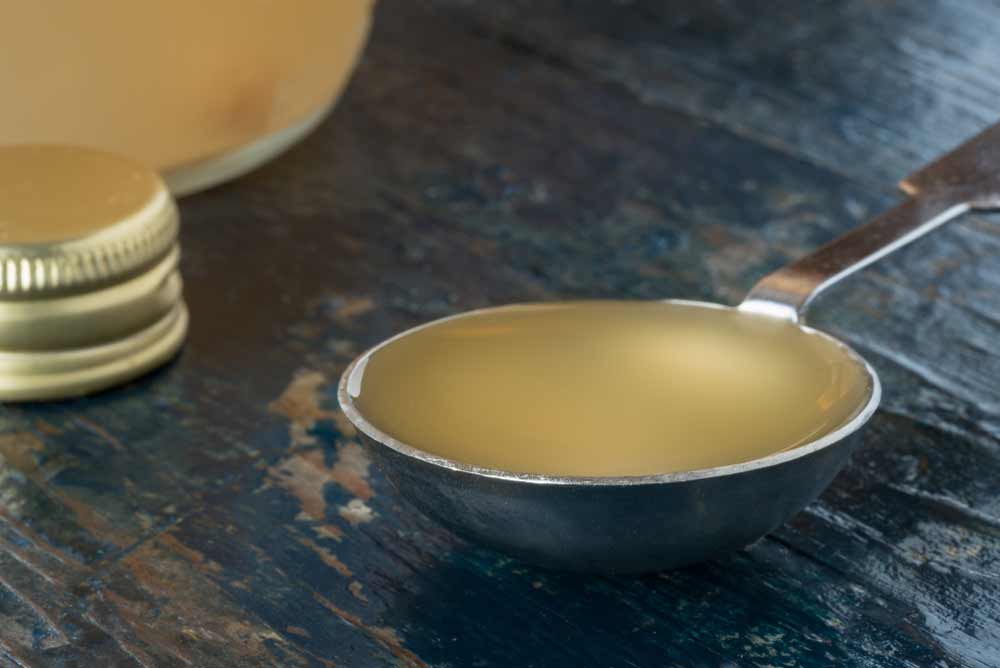Leg cramps can be quite painful; painful enough to wake you up in the middle of the night or halt you during a run. Muscle cramps are caused due to an involuntary contraction in one or more of your muscles. While they are majorly harmless, leg cramps can temporarily affect your action. In this article, we talk about how you can use apple cider vinegar for leg cramps and what all precautions you need to keep in mind while consuming ACV.
What Causes Leg Cramps?
Leg cramps are generally caused due to a deficiency of potassium, dehydration, overuse of a muscle or muscle strain. Also, there can be an underlying medical condition causing the leg cramps, such as:
Mineral deficiency
Potassium plays a key role in sending signals from the brain for muscle contractions. A deficiency of potassium in the blood affects the relay of these signals, hence causing muscle cramps.
Inadequate blood supply
Sometimes, the narrowing of blood arteries in your legs can trigger cramp-like pain when you are exercising. The pain should end soon after you stop exercising.
Nerve compression
A compression in your spine’s nerves can also cause cramps in your leg. This pain generally worsens as you walk.

Muscle fatigue
Certain exercises and activities that rely heavily on your leg muscles can make you more prone to leg cramps. These include weight training, recreational running, standing in the same position for too long, or playing sports that require excessive running like football and soccer.
Other medical conditions
Certain medical conditions like pregnancy, thyroid, kidney failure, vascular disease, type 2 diabetes, sarcoidosis, and cirrhosis can also increase your risk of having leg cramps.
How to take apple cider vinegar for leg cramps?
For thousands of years, apple cider vinegar has been used as a natural remedy to treat multiple health conditions including leg cramps. Most of the time it is mixed with natural ingredients to enhance its benefits. Here are five simple ways to incorporate ACV into your daily diet and routine:
Apple cider vinegar bath
There’s nothing better than a nice warm bath to relax your muscles and freshen up your body. For an ACV bath, mix 2-4 cups of ACV into a tubful of lukewarm water. Sink yourself in this for about half an hour and you’ll notice an instant relief in the cramps. Just make sure not to let concentrated ACV touch any part of your skin as the acidic content can cause irritation. You can also use apple cider vinegar for hair loss as it smooths and helps removing dandruff, making your hair shiny and healthy.
Apple cider vinegar with water
This is the most common and easiest method of consuming apple cider vinegar. Just take a glass of normal water and add one teaspoon of ACV to it. Drink this one glass every day until you feel complete relief from your leg cramps.

Apple cider vinegar salad dressing
ACV can also be used as a salad topping. Just sprinkle a few drops of the vinegar on top of your favorite raw veggies and enjoy the tangy, fresh salad.
ACV with honey
While having a glass of honey water each morning can reap amazing benefits for weight loss, you can even add a teaspoon of vinegar into the recipe. Even if you don’t have any weight loss goals, adding a spoon of honey into diluted ACV can make it taste better.
Apple cider vinegar warm compress
You can also try a warm compress of apple cider vinegar for leg cramps. Firstly, take one cup of apple cider vinegar and two cups of water. Next, get a clean towel and soak it in this mixture. Now, use this as a warm compress to apply on the leg cramps. This method will increase blood circulation in the affected area and soon give much relief from the cramps.
Apple Cider Vinegar Dosage
Apple cider vinegar really comes as a blessing when we are looking for home remedies to treat certain health conditions like leg cramps. However, owing to the acidic nature of this vinegar, there are a few tips and precautions that you must consider when incorporating ACV into your daily diet:
Do not drink it up straight
Just like any other vinegar, ACV is bitter in taste. Hence, some people might think of gulping down concentrated ACV and eat something right after to overcome the bitter taste. This can actually do more harm than any good. The high acidic nature can damage your stomach, esophagus, and throat as well.
Don’t drink ACV right after a meal
Apple cider vinegar is best consumed on an empty stomach. This not only helps in better digestion but weight loss as well. However, drinking ACV right after the meal can make the stomach acetic, consequently, delaying the digestion process.

Don’t drink it before bed
It’s not recommended to drink ACV right before bed even if it is in a diluted form. This is because the contents of your stomach can move back into the esophagus when you are in a sleeping position. Even when you drink it during the daytime, make sure to not lie down for at least 30 minutes.
Do not breathe it in
The potent smell of ACV can cause irritation to your eyes, nose, and lungs. Hence, you should not take a strong whiff of the vinegar when drinking it up.
Do not consume too much of it
Though apple cider vinegar can do wonders to your body’s health, you don’t want to consume it crazily. If you are just starting to include ACV in your diet, do it by beginning with only small portions of it. There can be chances that your body rejects it and you experience an upset stomach. Therefore, make sure you let your body slowly adapt to it.
Takeaway
If you are reading this, thank you for sticking to the end! While it has been a part of home remedies for thousands of years, there are several recent testimonials to prove the benefits of apple cider vinegar for leg cramps. Try the above-mentioned recipes and you’ll soon bid goodbye to those annoying leg cramps. Just make sure to keep the dosage in moderation because we don’t want you to face off with any of the effects of acetic acid.
